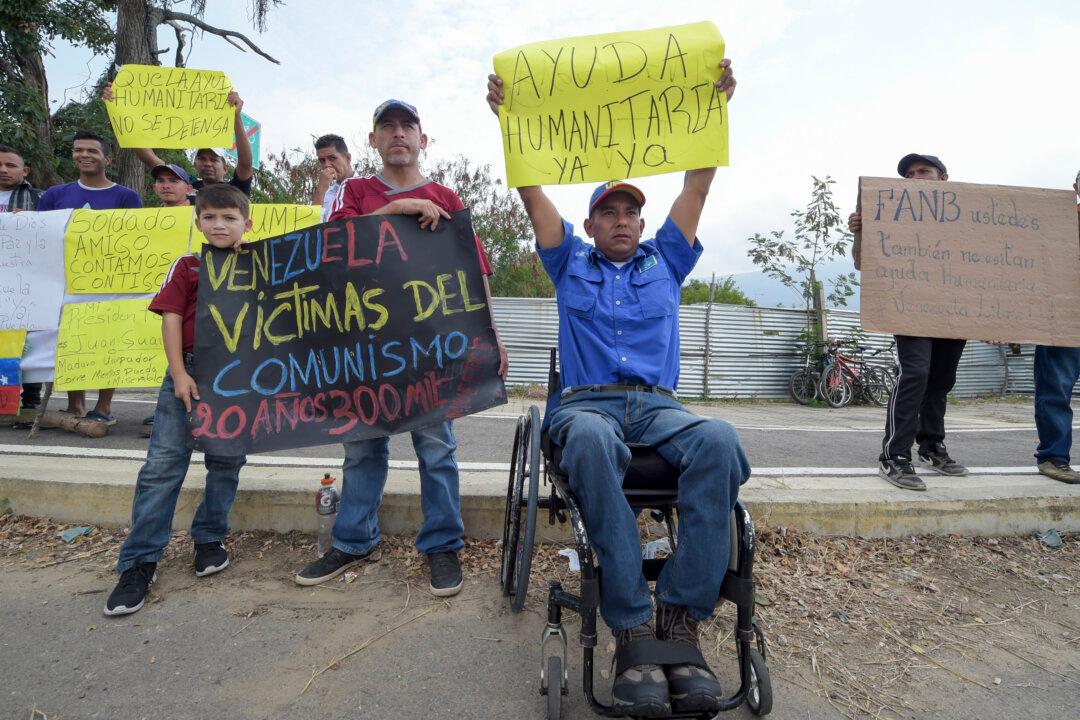CUCUTA, Colombia—Members of the Venezuelan opposition working to send humanitarian aid into the country say the answer to breaking the blockade by the Maduro regime will involve the mass mobilization of the Venezuelan people.
Efforts by a coalition of the opposition, the United States, and Colombia to send food, medicine, and hygiene supplies to alleviate the suffering caused by the country’s spiraling economic and political crisis were complicated last week when the National Guard loyal to Venezuelan leader Nicolas Maduro blocked a bridge connecting northeastern Colombia with western Venezuela with two overturned shipping crates and an oil tanker.




